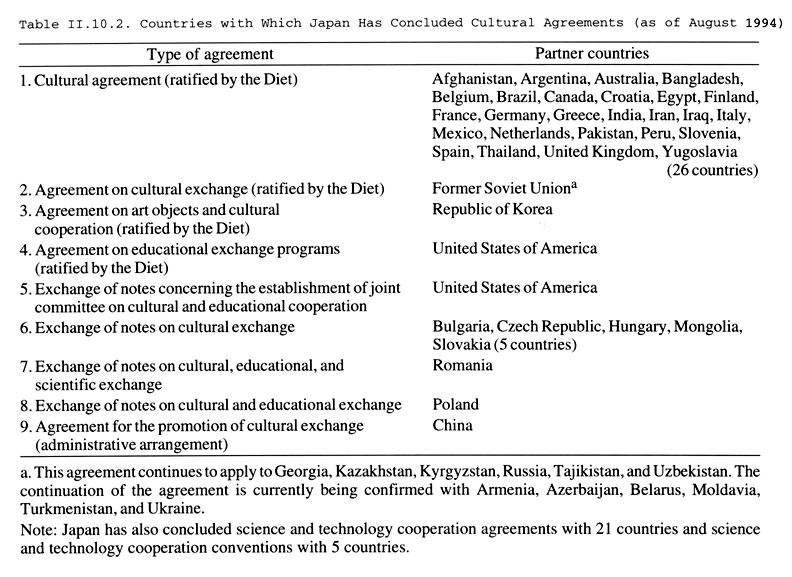| Home > Policy > White Paper, Notice, Announcement > White Paper > JAPANESE GOVERMENT POLICICIES IN EDUCATION, SCIENCE AND CULTURE 1994 > PART II Chapter 10 Section 3 1 | ||
Japan is involved in various types of international exchange and cooperation in education, culture, and sports at the national, regional, and nongovernmental levels. At the government level, Japan has concluded cultural agreements and other arrangements with 41 countries. The Japanese government is promoting bilateral student exchange programs, encouraging education in the languages of partner countries, and promoting international exchange among researchers. It is also promoting exchange activities in culture and sports and participates in consultation on matters relating to these activities ( Table II.10.2 ).
Aspects of international cooperation that have become increasingly important in recent years include bilateral cooperation with developing countries in such areas as human-resource development and multilateral cooperation through international organizations, such as the United Nations Educational, Scientific, and Cultural Organization (UNESCO), the Organization for Economic Cooperation and Development (OECD), and the Asia Pacific Economic Cooperation forum (APEC).

| Back to Top | MEXT HOME |